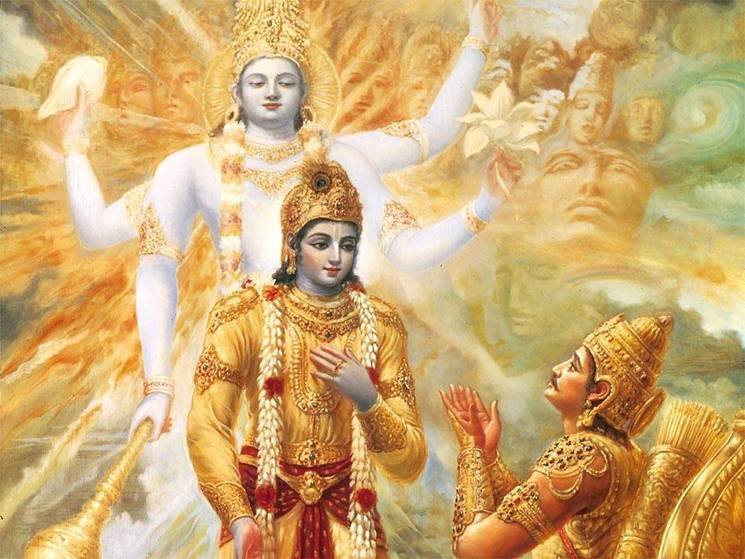Question : I always thought that the spiritual and dharmic role of a person is to be calm and never get angry, under any circumstance, and sacrifice one’s own life before resorting to violence. However, in the Mahabharata, Krishna keeps saying so many times that it is a coward that backs down from a war. At the same time, He says that war is inevitable when all other options are exhausted. However, I don’t understand this because whenever He says this, the war is referring to protecting one’s honor. I can understand a king resorting to war because it is his duty to protect his kingdom, but protecting one’s “honor” is like justifying one’s false ego. I would have thought that Krishna would have suggested not to fight, since, tolerance, forgiveness, and patience are the highest levels of dharma and spirituality (as stated by Yudhisthira).
Answer by Romapada Swami :
The ultimate goal of all spiritual and religious principles (dharma) is satisfaction of the Supreme Lord. svanusthitasya dharmasya samsiddhir hari tosanam. (SB 1.2.13) In and of itself, nothing is intrinsically good or bad; the real test of the merit of any action is found in the satisfaction of the Supreme. If Krishna is pleased, that is the highest perfection of dharma, and if He is not served by one’s meticulous upkeep of morality and ethics, such endeavor is simply useless labor! notpadayed yadi ratim shrama eva hi kevalam (SB 1.2.8)
Certainly tolerance, forgiveness etc. are highly virtuous qualities; but a higher principle is executing the will of the Lord. For example when Krishna wanted to Yudhisthira to tell a lie, doing so was his dharma; if he had disobeyed the Lord’s order on the grounds of mundane morality, it would have been adharma. Under ordinary circumstances one must always speak only the truth, again because that pleases Krishna. Conversely, materially ignoble and even despicable qualities like anger become glorious when used in God’s service. For example, in a mood of transcendental anger Hanuman burned Lanka; such anger is not a sign of Hanuman’s spiritual disqualification rather it exemplifies his intense devotion and attachment to serving Lord Ram very gloriously. Contrastingly, anger or violence should certainly not be used for self- aggrandizement nor exhibited because of one’s inability to control one’s senses.
All this is not to recommend transgression of moral principles, but to keep in focus the real purpose and goal of all religious principles, and not to be stuck upon their external aspects. Through these and many such seemingly adharmic situations in His pastimes, Krishna is actually reinforcing his final teaching: sarva dharman parityajya mam ekam saranam vraja, “Give up all other so-called dharma and just surrender to Me. That is the highest dharma.”
Having said all of the above, there are several reasons why Krishna wanted the battle to be fought. One reason is He wanted to establish the righteous kingdom of the Pandavas and reduce the burden of demoniac kings.
Another reason is that Yudhisthira was the rightful king and the Pandavas asked for at least five villages to rule but were refused; as ksatriyas they could not live by any other means and they had to gain the kingdom for the execution of their livelihood. They were thus left with no choice but to resort to war.
Even from the material point of view, non-violence is not the dharma of a ksatriya; they have to show heroism and chivalry in establishing righteousness and must not ignore, in the name of nonviolence, acts of adharma and other forms of wrongdoings brought before them. “Upholding the Pandava’s honor” was thus not an appeal to their false-ego but rather to their mandate to uphold righteousness.







